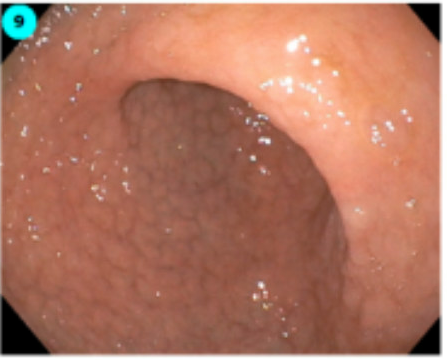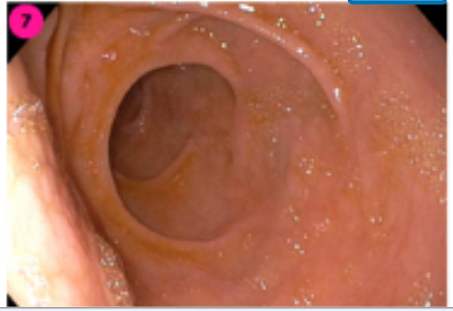Monday Poster Session
Category: GI Bleeding
P3124 - Vitamin K Deficiency Secondary to Celiac Disease: A Rare Cause of Spontaneous Bleeding and Coagulopathy
Monday, October 27, 2025
10:30 AM - 4:00 PM PDT
Location: Exhibit Hall

Ahmad Sandouka
University of Nicosia Medical School
Engomi, Nicosia, Cyprus
Presenting Author(s)
Ahmad Sandouka, 1, Sayed T. Shah, 2, Barakat Aburajab Altamimi, MD3
1University of Nicosia Medical School, London, England, United Kingdom; 2University Of Nicosia Medical School, Abbotsford, BC, Canada; 3Mercy Medical Center Cedar Rapids, Cedar Rapids, IA
Introduction: Severe vitamin K deficiency can lead to spontaneous bleeding due to its important role in coagulation and Celiac disease characterized by hypersensitivity to gluten, can exacerbate vitamin K deficiency. This case report presents a 61 year old male who presented with bleeding due to vitamin K deficiency secondary to undiagnosed celiac disease, highlighting the diagnostic challenges and the importance of early recognition and intervention in such cases. The patient also had elevated creatine kinase (CK), which contributed to the complexity of his presentation.
Case Description/
Methods: A 61 year old male presented with upper extremity swelling, bruising, and a hemoglobin level of 6.9 g/ dL, a significant drop from his baseline of 14.9 g/ dL. He had elevated CK and His INR was elevated at >16 indicating severe coagulation dysfunction. Th e patient denied nausea, vomiting, abdominal pain, weight loss, or blood in his stool. But reported recent melena and epistaxis. He was not on blood thinners but regularly took NSAIDs (Naproxen) for chronic body aches and drank six beers nightly.
CT scan of the abdomen revealed mild small bowel wall thickening, suggesting enteritis or ileus. Whereas, prior colonoscopy had removed multiple tubular adenomas. An upper endoscopy revealed normal esophageal mucosa, gastric erythema and scattered erosions in the antrum. The duodenum showed scalloped folds with a "cracked earth" appearance, raising suspicion for celiac disease
Pathology results confirmed severe villous blunting and increased intraepithelial lymphocytes in the duodenum, consistent with celiac disease. Gastric biopsy revealed chronic gastritis without evidence of Helicobacter pylori infection.
Discussion: This case highlights a rare presentation of celiac disease. The patient's elevated INR was attributed to malabsorption of fat-soluble vitamins, particularly vitamin K, essential for clotting factor synthesis. Elevated CK levels may have been related to the underlying inflammatory process associated with celiac disease. Endoscopic findings of duodenal scalloping and biopsy results confirmed celiac disease.

Figure: Endoscopic view of scalloped duodenal folds with a cracked earth appearance

Figure: Endoscopic image showing villous blunting and mucosal changes
Disclosures:
Ahmad Sandouka indicated no relevant financial relationships.
Sayed Shah indicated no relevant financial relationships.
Barakat Aburajab Altamimi indicated no relevant financial relationships.
Ahmad Sandouka, 1, Sayed T. Shah, 2, Barakat Aburajab Altamimi, MD3. P3124 - Vitamin K Deficiency Secondary to Celiac Disease: A Rare Cause of Spontaneous Bleeding and Coagulopathy, ACG 2025 Annual Scientific Meeting Abstracts. Phoenix, AZ: American College of Gastroenterology.
1University of Nicosia Medical School, London, England, United Kingdom; 2University Of Nicosia Medical School, Abbotsford, BC, Canada; 3Mercy Medical Center Cedar Rapids, Cedar Rapids, IA
Introduction: Severe vitamin K deficiency can lead to spontaneous bleeding due to its important role in coagulation and Celiac disease characterized by hypersensitivity to gluten, can exacerbate vitamin K deficiency. This case report presents a 61 year old male who presented with bleeding due to vitamin K deficiency secondary to undiagnosed celiac disease, highlighting the diagnostic challenges and the importance of early recognition and intervention in such cases. The patient also had elevated creatine kinase (CK), which contributed to the complexity of his presentation.
Case Description/
Methods: A 61 year old male presented with upper extremity swelling, bruising, and a hemoglobin level of 6.9 g/ dL, a significant drop from his baseline of 14.9 g/ dL. He had elevated CK and His INR was elevated at >16 indicating severe coagulation dysfunction. Th e patient denied nausea, vomiting, abdominal pain, weight loss, or blood in his stool. But reported recent melena and epistaxis. He was not on blood thinners but regularly took NSAIDs (Naproxen) for chronic body aches and drank six beers nightly.
CT scan of the abdomen revealed mild small bowel wall thickening, suggesting enteritis or ileus. Whereas, prior colonoscopy had removed multiple tubular adenomas. An upper endoscopy revealed normal esophageal mucosa, gastric erythema and scattered erosions in the antrum. The duodenum showed scalloped folds with a "cracked earth" appearance, raising suspicion for celiac disease
Pathology results confirmed severe villous blunting and increased intraepithelial lymphocytes in the duodenum, consistent with celiac disease. Gastric biopsy revealed chronic gastritis without evidence of Helicobacter pylori infection.
Discussion: This case highlights a rare presentation of celiac disease. The patient's elevated INR was attributed to malabsorption of fat-soluble vitamins, particularly vitamin K, essential for clotting factor synthesis. Elevated CK levels may have been related to the underlying inflammatory process associated with celiac disease. Endoscopic findings of duodenal scalloping and biopsy results confirmed celiac disease.

Figure: Endoscopic view of scalloped duodenal folds with a cracked earth appearance

Figure: Endoscopic image showing villous blunting and mucosal changes
Disclosures:
Ahmad Sandouka indicated no relevant financial relationships.
Sayed Shah indicated no relevant financial relationships.
Barakat Aburajab Altamimi indicated no relevant financial relationships.
Ahmad Sandouka, 1, Sayed T. Shah, 2, Barakat Aburajab Altamimi, MD3. P3124 - Vitamin K Deficiency Secondary to Celiac Disease: A Rare Cause of Spontaneous Bleeding and Coagulopathy, ACG 2025 Annual Scientific Meeting Abstracts. Phoenix, AZ: American College of Gastroenterology.
